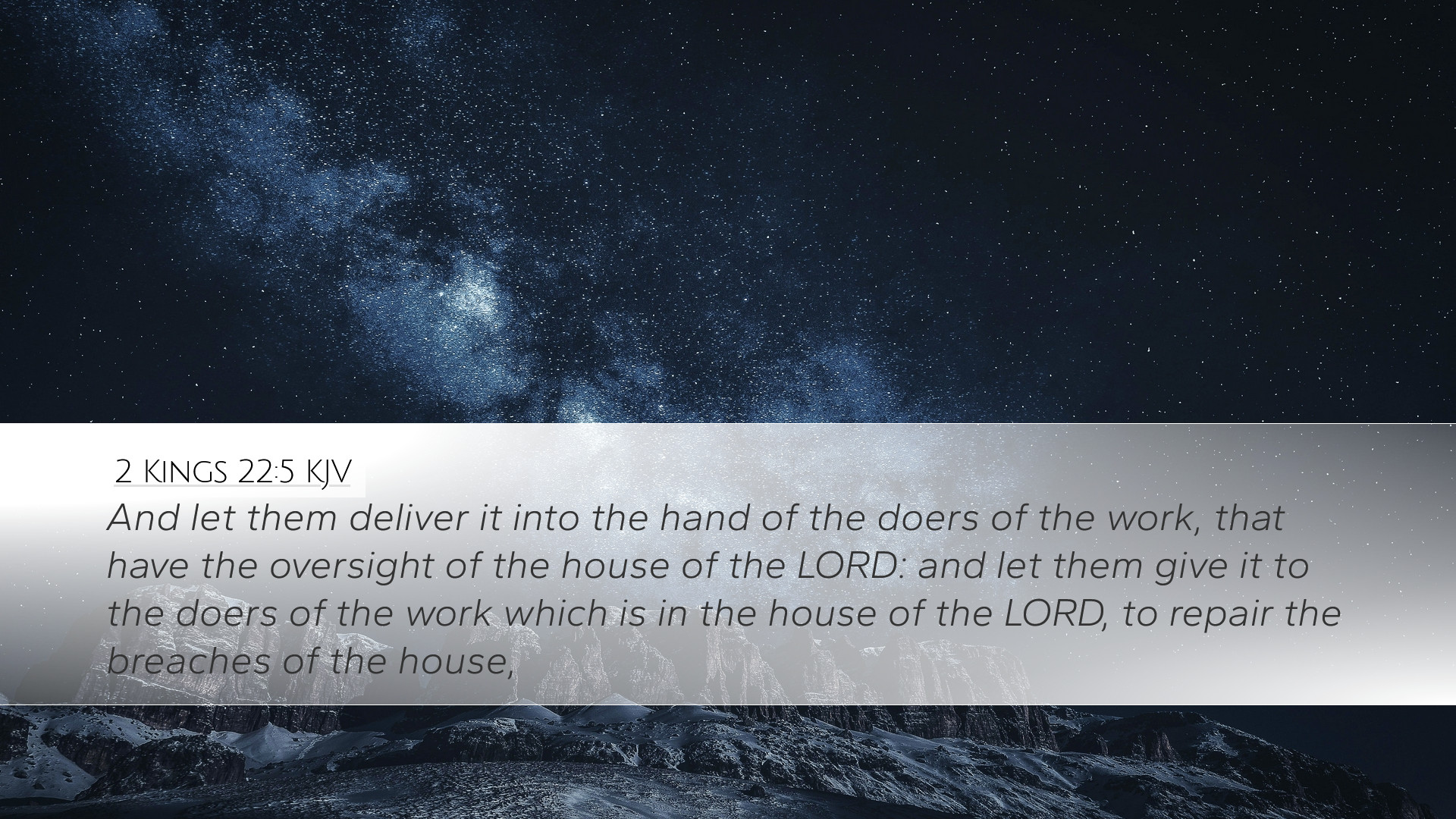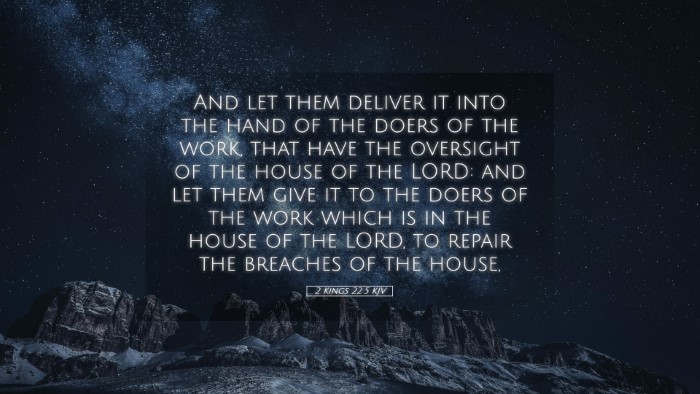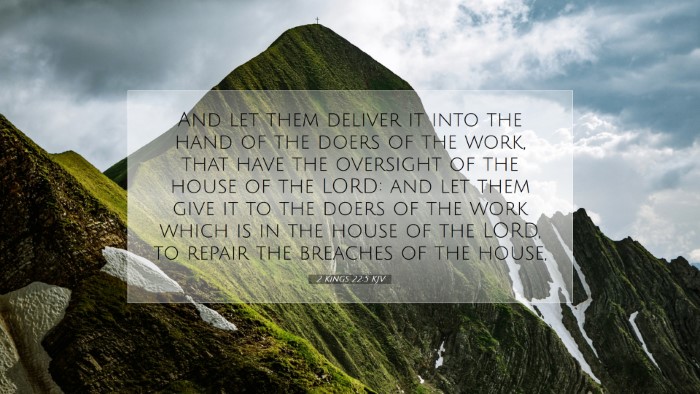Old Testament
Genesis Exodus Leviticus Numbers Deuteronomy Joshua Judges Ruth 1 Samuel 2 Samuel 1 Kings 2 Kings 1 Chronicles 2 Chronicles Ezra Nehemiah Esther Job Psalms Proverbs Ecclesiastes Song of Solomon Isaiah Jeremiah Lamentations Ezekiel Daniel Hosea Joel Amos Obadiah Jonah Micah Nahum Habakkuk Zephaniah Haggai Zechariah Malachi2 Kings 22:5
2 Kings 22:5 KJV
And let them deliver it into the hand of the doers of the work, that have the oversight of the house of the LORD: and let them give it to the doers of the work which is in the house of the LORD, to repair the breaches of the house,
2 Kings 22:5 Bible Commentary
Commentary on 2 Kings 22:5
2 Kings 22:5 states: "And let them deliver it into the hand of the doers of the work, that have the oversight of the house of the LORD: and let them give it to the doers of the work which is in the house of the LORD, to repair the breaches of the house."
This verse comes at a pivotal moment in the history of Israel, illustrating both the physical and spiritual restoration of the Temple. The command given by King Josiah to collect money for temple repairs reflects his dedication to the worship of Yahweh, which had been neglected during the reigns of his predecessors. The insights from notable commentaries shed light on the importance of this passage.
Historical Context
According to Albert Barnes, this period in Judah’s history is characterized by a significant spiritual decline due to previous kings who turned away from the worship of the true God. Josiah, recognizing the necessity for restoration, does not just aim to repair the Temple physically but seeks to restore true worship within the nation. The temple had fallen into disrepair, symbolizing the spiritual decay of the people.
Spiritual Significance
Matthew Henry emphasizes that the act of collecting money for repairs is an act of returning to the faith of their ancestors. He posits that a healthy spirituality is reflected in the physical house of worship. A house of God should be maintained as a priority, and the neglect of the temple represents neglect in faith and worship practices.
Furthermore, Adam Clarke notes that the fixing of the breaches in the temple parallels the need for personal restoration in the lives of believers. Just as the temple required physical restoration, so do the hearts of the faithful require repair and renewal. Clarke points out that this can be seen as a communal effort, emphasizing cooperation among the people to achieve a common spiritual goal.
Leadership and Stewardship
The verse also speaks volumes about the nature of leadership and stewardship. Josiah delegated responsibilities to those qualified to oversee the repairs (“the doers of the work”). This aspect highlights the importance of entrusting tasks to capable leaders, as discussed in Matthew Henry's commentary. Effective leadership is not merely about authority but about recognizing and utilizing the strengths of others within the community.
Albert Barnes asserts that this leadership structure demonstrates the principle of accountability. Those in positions of authority must report on their work and the use of resources. This guides us to reflect on how church leaders today manage resources given for spiritual purposes and the necessity for transparent stewardship.
Implications for Worship
From this passage, the implications reach into modern worship practices. The faithful work on the temple parallels our commitment to the church as the body of Christ today. As Clarke notes, every believer is called to contribute to the building of God’s house, which includes not only the physical church but also the spiritual community. Our resources, time, and talents should be united in the effort to strengthen and repair breaches in our communal worship and practice.
Conclusion
In summary, 2 Kings 22:5 reflects a crucial aspect of the relationship between faith and action. The work of repairing the Temple embodies the broader spiritual renewal that must take place when God’s people return to Him. The commentaries of Henry, Barnes, and Clarke provide rich insights into leadership, stewardship, and communal responsibility, calling contemporary readers to a deeper commitment to both their personal spiritual lives and the collective worship of God's house.
As believers engage with this text, they are challenged to consider how they can actively participate in the work of God within their communities and beyond, ensuring that their churches remain places where God's presence is honored and worship is authentically practiced.


